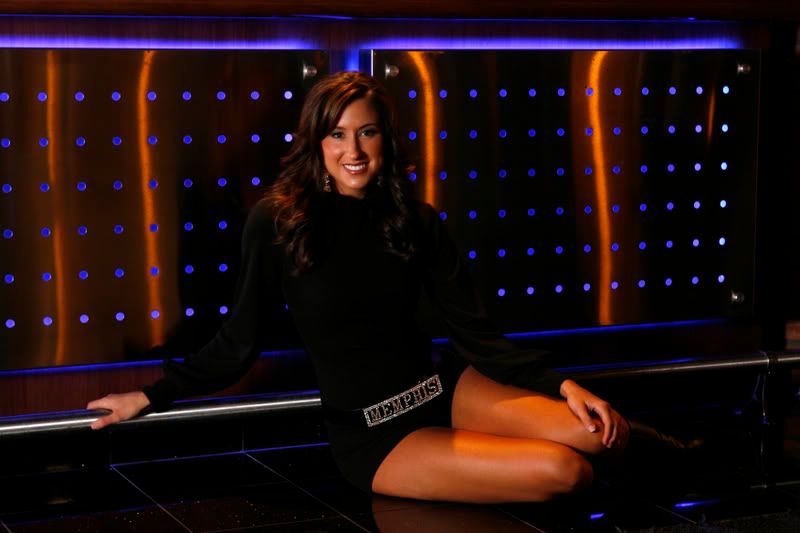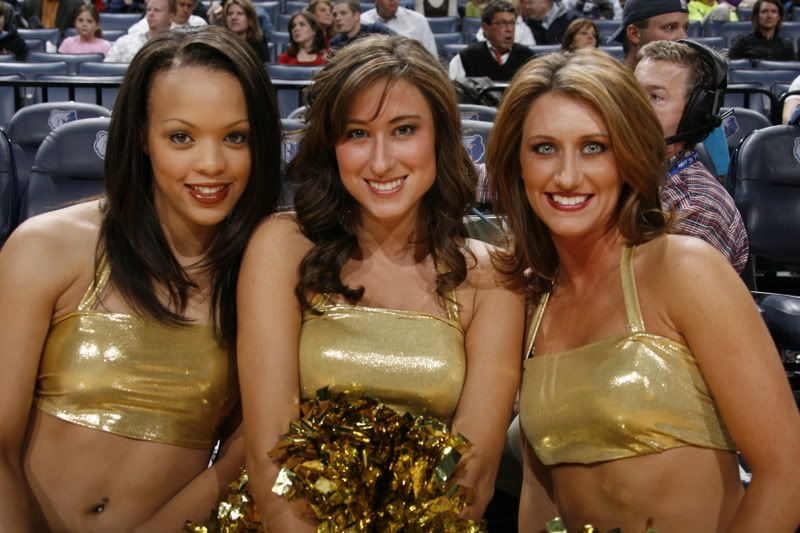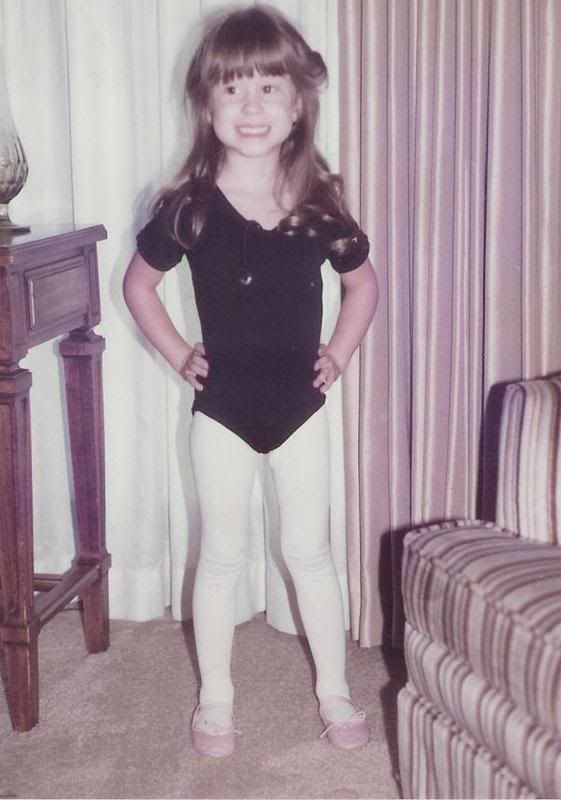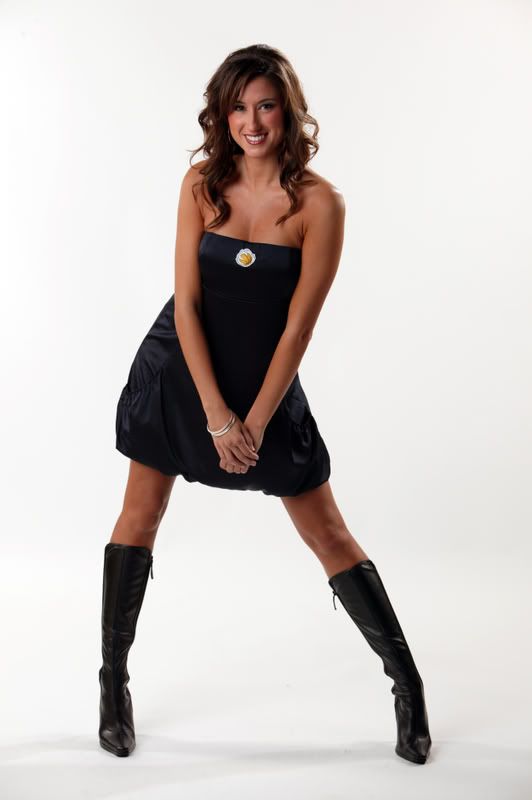Continuing the 3 Shades of Blue effort to keep fans informed with what is happening with former Grizzlies Dance Team member we were fortunate enough to run into Linea Wyatt a while back and she agreed to do an interview with us when got back in town. A dance team member since 2003, Linea officially retired this year from the squad. However, that isn't to say that Linea is slowing down.

3SOB: You were a Grizzlies dance team member for many years. What prompted you to try out and why did you decide to retire?
LW: I tried out because I simply could not imagine my life without dancing. I had just graduated from college and was starting Graduate school at the University of Memphis. I had been a part of a dance team since I could remember and was looking for an outlet in which I would still be able to perform on a regular basis. I had a few friends who were on the Grizzlies Dance Team who were also former U of M dancers who encouraged me to try out.
Retiring was one of the hardest decisions I’ve ever had to make for myself. Dancing, especially with the Grizzlies had become a huge part of my life. It was my outlet, my stress reliever, and social circle (considering many of my close friends are dancers). I had gotten to a point where I was ready to take the next step of my career and unfortunately that did not leave enough time for being a part of the team. I don’t think most people realize what a commitment it is, or how many hours the girls put into it each week. They don’t just show up at 7pm on game day!
3SOB: You mentioned the time commitment, what is a typical week like for the dance team members?
LW: A typical week would consist of two practices (about 3 hours each), an average of 2 games (about 6 hours each), and probably at least one promotional appearance (about 2 hours). So, I'd say on average each girl devotes about 20 hours per week to the team. Of course there are some weeks where there are 3 or even 4 games, extra practices, or long promotional appearances so it's isn't out of the ordinary for a girl to have dance team activities 5 or 6 days of the week.
3SOB: You were a dancer for both choreographers the Dance Team has had. What were the differences between their styles? Do you think Tamara has the team going in the right direction?
LW: I was lucky enough to work with both choreographers. Though they are quite different, but they are both great ladies with a passion and a gift for dance. Kathleen reminded me so much of my former technique training and I always felt right at home with her style and choreography. Tamara brought to Memphis a fresher, more audience focused style. She has worked with the NBA in many different roles and knows what has been successful in other markets. While less technically challenging, her style is fun to perform, and provided me the challenge of adapting to a new style. I definitely think she has the team moving in the right direction. 3SOB: When did you start dancing?
3SOB: When did you start dancing?
LW: I started dancing at the age of 3. I studied ballet, tap and jazz until I graduated from high school. Dancing for the Tigers brought me to Memphis. I enjoyed all 4 years of college dancing for the U of M, which taught me about commitment, competition, and most of all hard work! I met some life-long friends there and made so many memories. I also danced for the Redbirds Redhots during summer breaks from the University of Memphis. I auditioned for the Grizzlies in 2003 and was a part of the team until the 2007-2008 season.
3SOB: You said that the Tigers brought you to Memphis. Where were you living before coming here?
LW: I grew up in a small town about 50 miles Northwest of Nashville. It's called Cunningham, TN and is close to Clarksville. I lived there my entire life until moving to Memphis for college.
3SOB: You work now at St. Jude. What is the job like and do people recognize you from your dancing days?
LW: I love my new job! I’m working in National Program Marketing for ALSAC/St. Jude, which basically means that we manage programs that assist other organizations and individuals in raising money for the life-saving work being done at the hospital. I am about 2 months in to my new position, and while overwhelming at times, I think it is going to be a perfect fit. Yes, people recognize me from the Grizzlies dance team all of the time. And, not just new co-workers, I’ve been approached in restaurants, stores, and even in the bank. It’s really nice to know that at least a few people were paying attention to the faces of the girls on the floor, and it was always nice to hear someone say that they enjoy your performance.
3SOB: What are your plans for the future?
LW: That’s a good question? I tend to set more short-term goals for myself, and lately those include surviving my sister's wedding, adopting a dog, and maybe buying a house!
3SOB: Now that you no longer spend time with the Grizzlies dance team at night what do you do for fun?
LW: I'm enjoying spending more time with friends and family, reading and watching TV, traveling, shopping, and I'm volunteering weekly at the Ronald McDonald House. I'm also looking into teaching some classes at a local dance studio starting in the fall.
3SOB: As an owner of 3 dogs myself what type of dog are you looking to adopt? Are you looking for AKC registration or would a good old fashioned mutt suffice?
LW: I would love a mutt, I'm as sucker for a dog that is "so ugly it's cute".
At this point I mentioned something about how my nose gets cold and many people have described as being loyal like a mutt. Linea said that was nice and ended the interview.
I've got to remember to take off my wedding ring when I do these interviews!

















